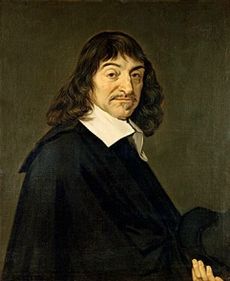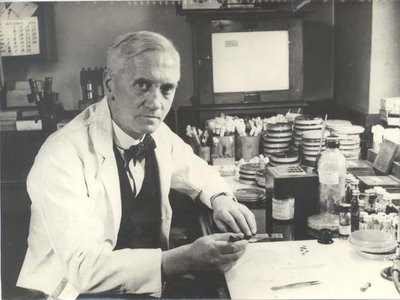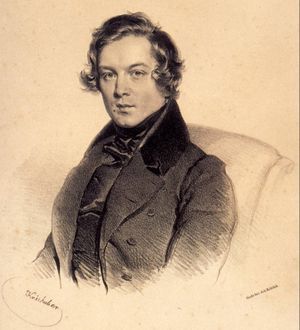Sunday, September 23, 2007
Friday, September 14, 2007
Sunday, September 09, 2007
Começos... (48)

Labels: Começos...
Thursday, May 03, 2007
Wednesday, April 25, 2007
Para ler em voz alta (52)

I fly and fly,
I see in pools
The shining sky,
And a happy bird
Am I, am I!
When I descend
Toward the brink
I stand and look
And stop and drink
And bathe my wings,
And chink, and prink.
When winter frost
Makes earth as steel,
I search and search
But find no meal,
And most unhappy
Then I feel.
But when it lasts,
And snows still fall,
I get to feel
No grief at all
For I turn to a cold, stiff
Feathery ball!
Labels: Para ler em voz alta
Saturday, April 07, 2007
Monday, April 02, 2007
Começos... (47)

He walked fairly fast, and doggedly, without looking much about him, like a man trying to shorten the way with some interesting train of thought. He was tall, but a little round-shouldered, about thirty-five to forty years of age, and dressed with that particular kind of shabbiness which marks a member of the intelligentsia on a holiday. He might easily been mistaken for a doctor or a schoolmaster at first sight, though he had not the man-of-the-world air of the one or the indefinable breeziness of the other. In fact, he was a philologist, and fellow of a Cambridge college. His name was Ransom.
Labels: Começos...
Wednesday, March 07, 2007
Saturday, March 03, 2007
Para ler em voz alta (51)

But the old man would not so, but slew his son,
Labels: Para ler em voz alta
Sunday, February 25, 2007
Friday, February 23, 2007
Começos... (46)
Now is the winter of our discontent,
Made glorious summer by this sonne of Yorke:
And all the cloudes that lowrd vpon our house,
In the deepe bosome of the Ocean buried.
Now are our browes bound with victorious wreathes,
Our bruised armes hung vp for monuments,
Our sterne alarmes changd to merry meetings,
Our dreadfull marches to delightfull measures.
Grim-visagde warre, hath smoothde his wrinkled front,
And now in steed of mounting barbed steedes,
To fright the soules of fearefull aduersaries,
He capers nimbly in a Ladies chamber,
To the lasciuious pleasing of a loue.
But I that am not shapte for sportiue trickes,
Nor made to court an amorous looking glasse,
I that am rudely stampt and want loues maiesty,
To strut before a wanton ambling Nymph:
I that am curtaild of this faire proportion,
Cheated of feature by dissembling nature,
Deformd, vnfinisht, sent before my time
Into this breathing world scarce halfe made vp,
And that so lamely and vnfashionable,
That dogs barke at me as I halt by them:
Why I in this weake piping time of peace
Haue no delight to passe away the time,
Vnlesse to spie my shadow in the sunne,
And descant on mine owne deformity:
And therefore since I cannot prooue a louer
To entertaine these faire well spoken daies.
I am determined to prooue a villaine,
And hate the idle pleasures of these daies:
Plots haue I laid inductious dangerous,
By drunken Prophesies, libels and dreames,
To set my brother Clarence and the King
In deadly hate the one against the other.
And if King Edward be as true and iust,
As I am subtile, false, and trecherous:
This day should Clarence closely be mewed vp,
About a Prophecy which saies that G.
Of Edwards heires the murtherers shall be.
Diue thoughts downe to my soule,
Heere Clarence comes,
Brother, good dayes, what meanes this armed gard
That waites vpon your grace?
WILLIAM SHAKESPEARE, The Tragedy of King Richard the third [1592-93]
Labels: Começos...
Saturday, February 10, 2007
Monday, January 29, 2007
Les Hébreux
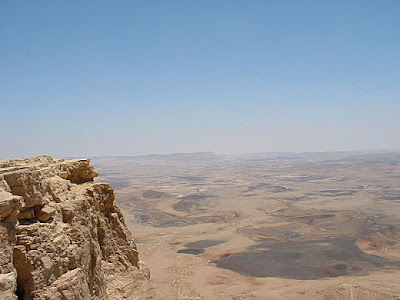 De tous les anciens peuples, on ne connaît que les Hébreux qui aient eu des dogmes publics de leur religion. Abraham et Moïse ont établi la croyance d’un seul Dieu, source de tout bien, auteur de toutes choses. Les Hébreux en parlent d’une manière très digne de la souveraine substance, et on est surpris de voir des habitants d’un petit canton de la terre plus éclairés que le reste du genre humain. Les sages d’autres nations en ont peut-être dit autant quelquefois, mais ils n’ont pas eu le bonheur de se faire suivre assez et de faire passer le dogme en loi.
De tous les anciens peuples, on ne connaît que les Hébreux qui aient eu des dogmes publics de leur religion. Abraham et Moïse ont établi la croyance d’un seul Dieu, source de tout bien, auteur de toutes choses. Les Hébreux en parlent d’une manière très digne de la souveraine substance, et on est surpris de voir des habitants d’un petit canton de la terre plus éclairés que le reste du genre humain. Les sages d’autres nations en ont peut-être dit autant quelquefois, mais ils n’ont pas eu le bonheur de se faire suivre assez et de faire passer le dogme en loi.Tuesday, January 23, 2007
Saturday, January 20, 2007
Para ler em voz alta (50)

Labels: Para ler em voz alta
Monday, January 08, 2007
Friday, January 05, 2007
Começos... (45)

Nobel, der König, versammelt den Hof; und seine Vasallen
Labels: Começos...
Saturday, December 30, 2006
Monday, December 25, 2006
A Christmas Tree
Being now at home again, and alone, the only person in the house awake, my thoughts are drawn back, by a fascination which I do not care to resist, to my own childhood. I begin to consider, what do we all remember best upon the branches of the Christmas Tree of our own young Christmas days, by which we climbed to real life.
Friday, December 08, 2006
Monday, December 04, 2006
Para ler em voz alta (49)

Labels: Para ler em voz alta
Tuesday, November 28, 2006
Saturday, November 25, 2006
Começos... (44)

Ich starrte auf das Schiff. Es lag ein Stück vom Quai entfernt, grell beleuchtet, im Tejo. Obschon ich seit einer Woche in Lissabon war, hatte ich mich noch immer nicht an das sorglose Licht dieser Stadt gewöhnt. In den Ländern, aus denen ich kam, lagen die Städte nachts schwarz da wie Kohlengruben, und eine Laterne in der Dunkelheit war gefährlicher als die Pest im Mittelalter. Ich kam aus dem Europa des zwanzigsten Jahrhunderts.
Labels: Começos...
Friday, November 17, 2006
Wednesday, November 15, 2006
Para ler em voz alta (48)
 Lines Written in Kensington Gardens
Lines Written in Kensington Gardens
In this lone, open glade I lie,
Screen'd by deep boughs on either hand;
And at its end, to stay the eye,
Those black-crown'd, red-boled pine-trees stand!
Birds here make song, each bird has his,
Across the girdling city's hum.
How green under the boughs it is!
How thick the tremulous sheep-cries come!
Sometimes a child will cross the glade
To take his nurse his broken toy;
Sometimes a thrush flit overhead
Deep in her unknown day's employ.
Here at my feet what wonders pass,
What endless, active life is here!
What blowing daisies, fragrant grass!
An air-stirr'd forest, fresh and clear.
Scarce fresher is the mountain-sod
Where the tired angler lies, stretch'd out,
And, eased of basket and of rod,
Counts his day's spoil, the spotted trout.

In the huge world, which roars hard by,
Be others happy if they can!
But in my helpless cradle I
Was breathed on by the rural Pan.
I, on men's impious uproar hurl'd,
Think often, as I hear them rave,
That peace has left the upper world
And now keeps only in the grave.
Yet here is peace for ever new!
When I who watch them am away,
Still all things in this glade go through
The changes of their quiet day.
Then to their happy rest they pass!
The flowers upclose, the birds are fed,
The night comes down upon the grass,
The child sleeps warmly in his bed.
Calm soul of all things! make it mine
To feel, amid the city's jar,
That there abides a peace of thine,
Man did not make, and cannot mar.
The will to neither strive nor cry,
The power to feel with others give!
Calm, calm me more! nor let me die
Before I have begun to live.
MATTHEW ARNOLD [1852]
Labels: Para ler em voz alta
Monday, October 30, 2006
Saturday, October 28, 2006
Para ler em voz alta (47)
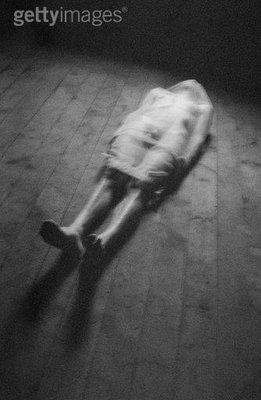
Alma minha gentil, que te partiste
Tão cedo desta vida, descontente,
Repousa lá no Céu eternamente
E viva eu cá na terra sempre triste.
Se lá no assento etéreo, onde subiste,
Memória desta vida se consente,
Não te esqueças daquele amor ardente
Que já nos olhos meus tão puro viste.
E se vires que pode merecer-te
Alguma cousa a dor que me ficou
Da mágoa, sem remédio, de perder-te,
Roga a Deus, que teus anos encurtou,
Que tão cedo de cá me leve a ver-te,
Quão cedo de meus olhos te levou.
LUÍS DE CAMÕES [s.d.]
Labels: Para ler em voz alta
Thursday, October 26, 2006
Monday, October 23, 2006
Para ler em voz alta (46)
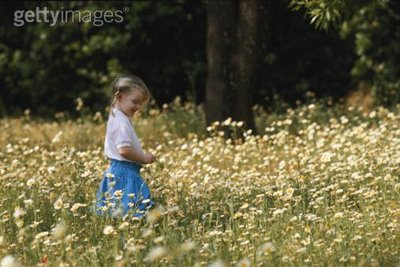
Leaves from eternity are simple things
To the worlds gaze where to a spirit clings
Sublime and lasting – trampled underfoot
The daisy lives and strikes its little root
Into the lap of time – centuries may come
And pass away into the silent tomb
And still the child hid in the womb of time
Shall smile and pluck them when this simple rhyme
Shall be forgotten like a church-yard stone
Or lingering lye unnoticed and alone
When eighteen hundred years our common date
Grows many thousands in their marching state
Aye still the child with pleasure in his eye
Shall cry the daisy a familiar cry
And run to pluck it – in the selfsame state
As when time found it in his infant date
And like a child himself when all was new
Wonder might smile and make him notice too
Labels: Para ler em voz alta








